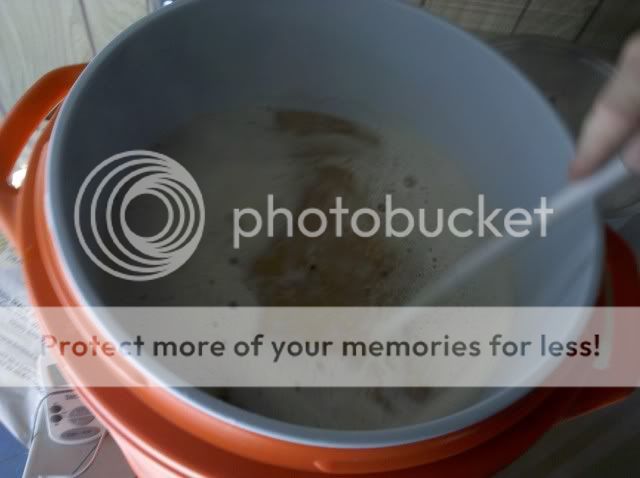Chefencore
Well-Known Member
My next batch is a IIPA, with a 17 lb grain bill. I've done the calculations, and if I use a 1:1 ratio, after the infusion, my mash tun will be full, and I will need only a 1 gallon sparge. If I bump it up to 1.1 gal/lb I will have absolutely NO room for correction if I don't hit my temps, and will 'need' only a 1qt sparge.
I've only brewed maybe 5 all-grain batches, and have had mixed results with temps.
Also, since I want to extract every drop of sugary goodness, I was wondering about sparging. From what I've read, you want to keep the flow into the tun equal to what is draining out, and the water level just a few inches above the grain bed. After I vorlauf, should I drain down to the grain bed (should be rather high with this one) then begin to sparge?
I've only brewed maybe 5 all-grain batches, and have had mixed results with temps.
Also, since I want to extract every drop of sugary goodness, I was wondering about sparging. From what I've read, you want to keep the flow into the tun equal to what is draining out, and the water level just a few inches above the grain bed. After I vorlauf, should I drain down to the grain bed (should be rather high with this one) then begin to sparge?









![Craft A Brew - Safale BE-256 Yeast - Fermentis - Belgian Ale Dry Yeast - For Belgian & Strong Ales - Ingredients for Home Brewing - Beer Making Supplies - [3 Pack]](https://m.media-amazon.com/images/I/51bcKEwQmWL._SL500_.jpg)






























